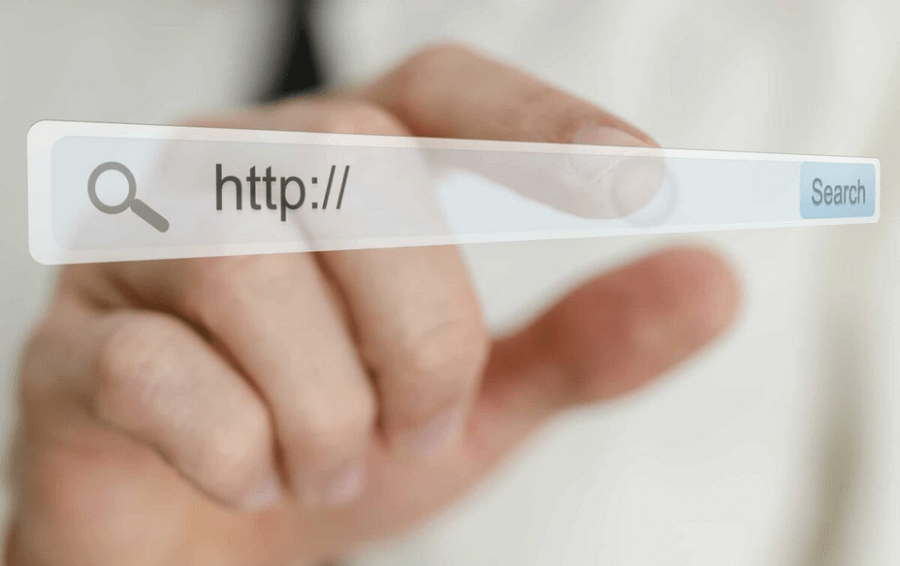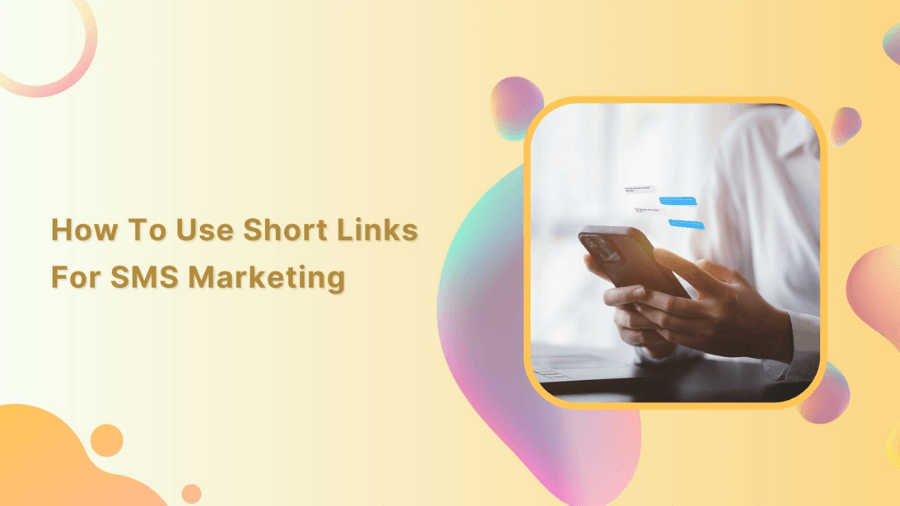📑 Table of Contents
- Short URLs: Why They Matter!
- How Short URLs Work in SMS Marketing
- 1. Precise Tracking of Clicks and Engagement
- 2. Saving Valuable Space for Your Message
- 3. Enhancing Professionalism and Avoiding Spam
- 4. Bypass Carrier Blocks with Trusted Shorteners
- 5. Boosting Brand Awareness with Custom URLs
- 6. Tracking Visitor Behavior for Better Insights
- Best Practices for Using Short URLs in SMS Marketing
- Final Verdict
Text message marketing is one of the most effective ways to engage with customers directly. However, you must use every character wisely to make it truly impactful. That’s where short URLs come in. They do more than just save space; they streamline your messages, enhance tracking, and boost engagement. This guide will walk you through the benefits of short URLs in text message marketing and how they can transform your campaigns.
Short URLs: Why They Matter!
Short URLs are compact versions of long web addresses. In text message marketing, space is at a premium. With a limit of 160 characters for a standard SMS and up to 480 for longer messages, long URLs can clutter your content, leaving little room for a compelling call-to-action. But short URLs do much more than just save space. They improve your brand’s image, increase click-through rates, and provide valuable insights into customer behavior.
Short URLs like “yeptext.me/mybrand” instead of a long, complex web link make your message look clean and professional. Additionally, platforms like YepText offer custom short URLs that are safe to use and carrier-friendly. Now, let’s explore the benefits in detail.
How Short URLs Work in SMS Marketing
Short URLs are a crucial tool for SMS marketing because they help marketers share essential links with users without consuming too many characters from the limited SMS length. SMS messages are typically limited to 160 characters, so using long URLs can quickly eat up the space needed for the marketing message itself. Short URLs compress lengthy web links into a more manageable format, allowing brands to communicate more effectively while providing users with easy access to websites, product pages, promotions, and other relevant content.
Marketers often use short URLs to:
- Direct recipients to landing pages.
- Encourage users to participate in promotions or surveys.
- Link to app downloads, sign-up forms, or customer portals.
- Track user engagement through clicks on the provided URL.
Role of URL Shorteners in Converting Long, Complex URLs to Short Ones
URL shorteners are key in transforming lengthy and complex URLs into compact, user-friendly links suitable for SMS marketing. Here’s how they work:
- Compression
URL shorteners use algorithms to condense the long URL into a unique shortened code, typically consisting of a domain (e.g., bit.ly) followed by a string of characters. The shortened link redirects users to the original, longer URL when clicked. - Redirection
When a user clicks on a shortened URL, they are redirected to the original webpage through the URL shortener’s service. This redirection happens instantly, making the user experience seamless. - Tracking and Analytics
URL shorteners often embed tracking data into the shortened link, allowing marketers to collect valuable insights. The analytics provide data on the total number of clicks, times of engagement, user location, and the devices used to click the link. This helps marketers evaluate the performance of the SMS campaign and optimize future messages based on user behavior.
By using URL shorteners, SMS marketers can ensure their messages are concise, visually appealing, and still contain the necessary links to guide users toward the intended action, all while tracking the performance of the campaign.
1. Precise Tracking of Clicks and Engagement
One of the biggest advantages of short URLs is the ability to track clicks precisely. When you send a text with a short URL, you can monitor who clicked on it, when they clicked, and what device they used. This information is crucial for understanding your audience’s behavior and measuring the success of your campaigns.
For instance, if you notice a spike in clicks during specific times of the day, you can adjust your messaging schedule to target those peak periods. If your analytics show that most clicks come from mobile devices, you can optimize your landing pages for a seamless mobile experience. This data-driven approach helps you tailor future campaigns, ensuring they resonate more effectively with your audience.
2. Saving Valuable Space for Your Message
Space is everything in SMS marketing. You must be concise yet compelling with the 160-character limit for standard messages. Long URLs can take up a large portion of the message, leaving little room for your main content. Short URLs free up space, allowing you to focus on crafting an engaging call to action or highlighting your offer’s key benefits.
For example, a long link like “https://www.yoursite.com/special-offers/limited-time-only” could use up most of your message space. In contrast, a short URL such as “yeptext.me/sale” gives you more room to grab the reader’s attention and deliver your message effectively.
Short URLs also help maintain a clean message structure. Recipients can quickly identify the link without feeling overwhelmed by a long string of characters. This simplicity boosts the likelihood of the recipient engaging with your content.
3. Enhancing Professionalism and Avoiding Spam
Long URLs often appear cluttered and spammy. When people see a lengthy, complex link in a text, they may hesitate to click it, fearing it could be Spam or a malicious site. Moreover, some carriers and mobile providers automatically block messages containing suspicious-looking URLs, resulting in lost potential sales and profits.
Short URLs, especially those created with a trusted service like YepText, look clean, professional, and trustworthy. They reassure recipients that the link is safe to click. Additionally, YepText’s custom short URLs bypass many carrier blocks that often affect third-party shorteners like Bitly or Cuttly. This means your messages are more likely to reach the recipient and encourage interaction.
4. Bypass Carrier Blocks with Trusted Shorteners

Many popular third-party URL shorteners, like Bitly and Cuttly, are often flagged by carriers due to their frequent use in spam campaigns. Consequently, some mobile carriers automatically block messages containing these URLs, leading to missed sales opportunities and lower customer engagement.
YepText’s short URLs are designed to be carrier-friendly, ensuring that your text messages get through without a hitch. Using a trusted short URL service can increase the chances of your messages being delivered and viewed by your target audience. This reliability is crucial in maintaining a consistent and effective text message marketing strategy.
5. Boosting Brand Awareness with Custom URLs
Short URLs aren’t just about saving space—they can also serve as a branding tool. Customizing your short URLs to include your brand name enhances your business’s image and builds trust with your audience. For example, a link like “yeptext.me/mybrand” looks professional and clarifies to recipients that the message is from a legitimate source.
Using custom URLs strengthens your brand’s presence in every message you send. When recipients see a branded link, they are more likely to click on it, as it reinforces their familiarity with your business. This familiarity builds trust, which in turn increases engagement and conversion rates.
6. Tracking Visitor Behavior for Better Insights
Short URLs provide more than just basic click tracking; they allow for deeper insights into customer behavior. With YepText’s analytics, you can see detailed metrics like the number of clicks, the timing, and the devices used. This data can help you fine-tune your marketing strategy for future campaigns.
For example, suppose you observe that most of your clicks occur during the early evening. In that case, you can schedule future messages to be sent during that window, increasing the chances of engagement.
Similarly, if analytics show a preference for mobile clicks, you can ensure your landing pages are optimized for mobile viewing. This attention to detail can significantly improve your conversion rates and overall marketing success.
Best Practices for Using Short URLs in SMS Marketing
To get the most out of short URLs in your text message marketing campaigns, keep these best practices in mind:
- Keep Links Relevant: Ensure the short URL leads to content aligning with the message. Irrelevant links can confuse or frustrate recipients, reducing engagement.
- Incorporate a Strong CTA: Use action-oriented language to prompt recipients to click the link. Phrases like “Get Your Discount Now: [short URL]” or “Learn More Here: [short URL]” are effective.
- Limit to One URL per Message: Including multiple links can overwhelm the recipient and decrease the likelihood of clicks. Stick to one clear, actionable URL.
- A/B Test Your URLs: Experiment with different short URL variations and message placements to identify what works best. Use analytics to refine your approach based on data-driven insights.
- Ensure Mobile Optimization: Since most SMS recipients click on links using their mobile devices, ensure the landing pages are mobile-friendly. This provides a smooth user experience and increases conversion chances.

Final Verdict
Short URLs are a powerful tool in text message marketing. They go beyond simply saving space; they enhance tracking, improve branding, and make your messages more professional and engaging. Using YepText’s short URLs, you avoid common pitfalls like spam filters and carrier blocks, ensuring your messages get through to your audience effectively.
Incorporating short URLs into your SMS campaigns optimizes the character space, builds trust with your recipients, and provides invaluable insights into their behavior. Following best practices, you can create a more compelling and effective text message marketing strategy.
Ready to take your SMS marketing to the next level? Start using short URLs today, and watch how they can transform your campaigns into success stories.
